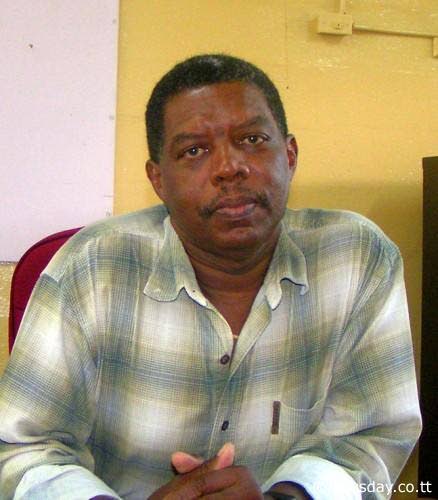Assessing Rowley administration

DR KENWYN TAYLOR
THE TERM of the Rowley-led government is near to an end and it would be interesting to do an assessment of the management of the affairs of the country. If one takes into account the political beast in the form of party identification primarily driven by one’s ethnic and cultural identity in Trinidad that strides through our society, a truly objective response has to be based on empirical data.
When the Rowley-led administration took office the country was just shifting out of a period of high oil prices. The price of oil in 2014 was US$93.17 a barrel. The annual percentage change in 2015 was -30.53 per cent and by 2016 the average closing price was US$43.29, less than half of the 2014 price.
From early on, the Government was being urged to adopt a structural adjustment programme with the Washington-based International Monetary Fund (IMF). The Government refused to take that route in spite of the concerns about the country’s economy. The IMF, however, was essentially supportive of the Government’s initial policy response, praising it for measures such as widening the tax base, cutting fuel subsidies and pushing government ministries, state enterprises and statutory bodies to reduce spending.
The result was that with some improvement driven by the re-energised energy sector, the economy returned to positive growth in the last quarter of 2017. The IMF in its report on the state of the economy at the end of 2017 noted that in TT “good progress was being made in implementing fiscal consolidation following the 6.1 per cent drop in 2016 driven by energy sector shocks.”
Additionally, Moody's Investors Service which had downgraded TT’s economic ratings to Baa3 from Baa2 and assigned a negative outlook based on the key drivers of the economy in 2016 was able to change that characterisation in 2018. Its 2018 report noted that there was evidence of institutional strength and the emergence of a credible fiscal and economic policy response from the Government to the crisis faced in 2016.
Another important policy decision was the restructuring of Petrotrin into Trinidad Petroleum. This was designed with strict fiscal accountability in mind and framed within the context of what seemed to be best for the country in the short term, medium term and long term. It prevented a potentially hazardous fiscal situation from developing by reversing the previous trend where Petrotrin was a drag on the fiscal accounts. The newly restructured company was able to secure financing for its activities.
The actions of the Prime Minister within the last five years were all framed within the limits afforded him by the constitution and more importantly within the boundaries that the economy allowed. They were all guided by the desire to protect critical interests and to make decisions that would show concern for public value outcomes as the successful management of the covid19 crisis clearly showed.
Crisis management in the context of the covid19 pandemic required an effort built around prevention, preparedness, quick response, and reconstruction of the economy. There was consensus that given the severity of covid19 the Government had to act early and act fast to get leverage over the pandemic. With the advice and overall support from the local scientific community the Government acted quickly and decisively to get the massive leverage over the pandemic to keep the entire community, both young and old, as safe as possible.
As early as January, citizens were warned about visiting high-risk countries and individuals who visited China were banned from entering the country. Within six weeks, the cruise season was suspended and people were advised to socially distance and the gradual lockdown began. Schools were closed and ten days later all ports of entry were shut.
The effort was recognised by the Oxford Covid19 Government Response Tracker which listed Trinidad as the country best positioned to successfully combat the virus and then later listed by the university as the most prepared country in the world to lift its covid19 lockdown measures.
Importantly as well was the quick response to the economic fallout. The Ministry of Finance and the Ministry of Social Development began to provide immediate relief to individuals who were adversely affected and committees were established to address the short-term, medium-term and long-term economic issues.
Much more can be said about the governance of the Rowley administration during its tenure in office. It was able to complete several infrastructural projects and more importantly save substantial sums of money on other projects proposed by the former administration. It is also now in pursuit of taxpayers’ money that was misappropriated during the period 2010 to 2015.
Dr Rowley’s leadership, social entrepreneurial effort and economic management during his tenure in office reflect a collaborative effort to address major issues. Managing this society demanded a crafty and skilful communicative effort which is always difficult to exercise in a democratic society quite unlike what took place in an illiberal democratic country as Singapore, which, under the leadership of the autocrat Lee Kuan Yew, was forcefully fashioned into what it has become today.
In 2015 the country was in crisis and the Rowley-led administration was able to develop policy solutions through a problem-focused intervention and interaction with relevant and affected actors. My conclusion is that the PNM deserves another term in office.
Dr Kenwyn Taylor is a lecturer in political science at the UWI St Augustine


Comments
"Assessing Rowley administration"